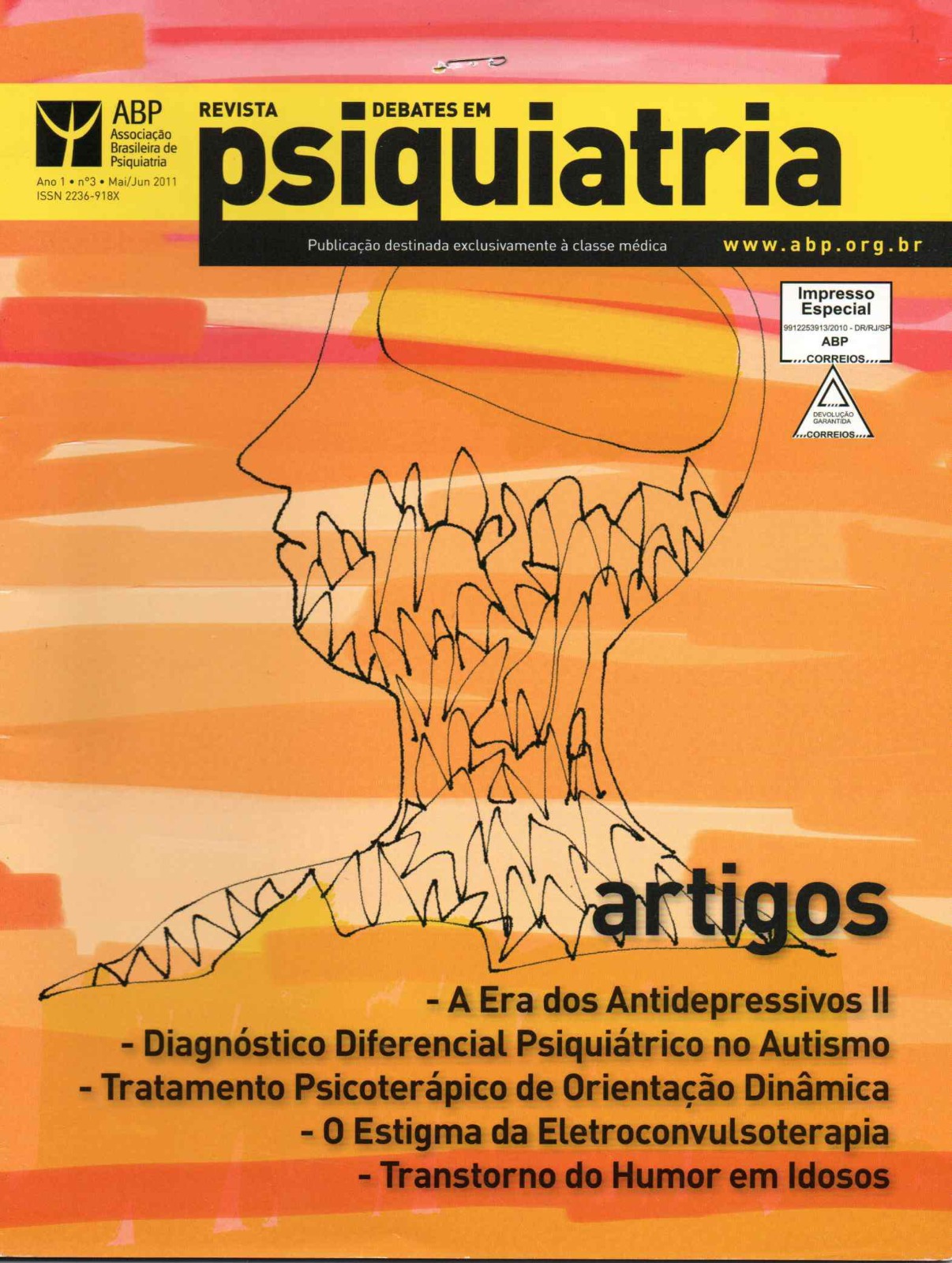The stigma of electroconvulsive therapy
DOI:
https://doi.org/10.25118/2763-9037.2011.v1.868Keywords:
Electroconvulsive therapy, stigma, medical educationAbstract
Electroconvulsive therapy is a safe and effective form of treatment, but it is surrounded by myths and misconceptions. Such ideas are the result of outdated stigmas and ignorance, perpetuated by certain groups motivated by private interests. Education is the best way to reverse this situation and expand the use of this tool.
Downloads
Metrics
References
Endler NS, Persad E, Electroconvulsive therapy: the myths and the realities. Toronto: Hans Huber, 1988.
Zorzetto R. título matéria. Revista de Pesquisa FAPESP, 31:42-7, 2007.
Kaplan, Sadock, Benjamin. Tratado de Psiquiatria. 6ª edição. Porto Alegre, Artes Médicas, 1999.
Bandstra NF, Camfield CS, Camfield PR. Stigma of epilepsy. Can J Neurol Sci. 2008 Sep;35(4):436-40
Abrams R. Electroconvulsive Therapy. Fourth Edition, Oxford University Press. 2002.
Dowman J, Patel A, Rajput K. Electroconvulsive Therapy - Attitudes and Misconceptions. Journal of ECT, Volume 21, Number 2, June 2005
McFarquhar TF, Thompson J. Knowledge and Attitudes Regarding Electroconvulsive Therapy Among Medical Students and the General Public. Journal of ECT 2008; 24: 244-253
McDonald A, Walter G. The Portrayal of ECT in American Movies. The Journal of ECT, 17(4):264–274, 2001
Walter G, Fisher K, Halter A. ECT in Poetry. The Journal of ECT 18(1):47–53, 2002
Simini B. Electroconvulsive therapy is restricted in Italy. Lancet (Policy and people), 353:993, 1999. Shiwach RK, Reid WH, Carmody TJ. An Analysis of Reported Deaths
Following ElectroconvulsiveTherapy in Texas, 1993–1998. Psychiatric Services, August 2001 Vol. 52 No. 8
Clothier JL, Freeman T, Snow L. Medical Student Attitudes and Knowledge About ECT. The Journal of ECT, 17(2):99–101 © 2001
Abrams R. The treatment that will not die. Psychiatric Clinics of North America, 17:525-30, 1994.
Downloads
Published
How to Cite
Issue
Section
License
Copyright (c) 2001 Sérgio Paulo Rigonatti, Eric Cretaz Cretaz, Eduardo Wagner Aratangy

This work is licensed under a Creative Commons Attribution-NonCommercial 4.0 International License.
Debates em Psiquiatria allows the author (s) to keep their copyrights unrestricted. Allows the author (s) to retain their publication rights without restriction. Authors should ensure that the article is an original work without fabrication, fraud or plagiarism; does not infringe any copyright or right of ownership of any third party. Authors should also ensure that each one complies with the authorship requirements as recommended by the ICMJE and understand that if the article or part of it is flawed or fraudulent, each author shares responsibility.
Attribution-NonCommercial 4.0 International (CC BY-NC 4.0) - Debates em Psiquiatria is governed by the licencse CC-By-NC
You are free to:
- Share — copy and redistribute the material in any medium or format
- Adapt — remix, transform, and build upon the material
The licensor cannot revoke these freedoms as long as you follow the license terms. Under the following terms:
- Attribution — You must give appropriate credit, provide a link to the license, and indicate if changes were made. You may do so in any reasonable manner, but not in any way that suggests the licensor endorses you or your use.
- NonCommercial — You may not use the material for commercial purposes.
No additional restrictions — You may not apply legal terms or technological measures that legally restrict others from doing anything the license permits.






























